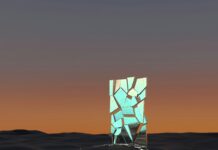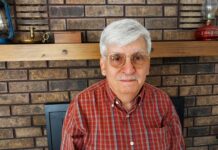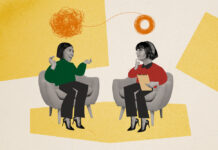A new article, published in the Journal of Humanistic Psychology, highlights recent findings suggesting psychotherapists’ dissatisfaction with the Diagnostic and Statistical Manual of Mental Disorders, fifth edition (DSM-5). The article emphasizes the opportunity to develop an alternative to the DSM-5 which the author, psychologist Jonathan Raskin, argues must include the following five elements:
- It must place psychosocial factors on equal footing with biological factors;
- It must categorize problems, not people;
- It must be scientifically grounded;
- It must be collaboratively developed;
- It must be usable across orientations, professions, and constituencies.
“The fact that psychologists and counselors are interested in alternatives suggests an uneasy relationship between psychotherapists and the medical model DSM diagnostic system that they regularly use,” Raskin, a therapist and professor of psychology at SUNY New Paltz, writes.
 Since the transition to its fifth edition in 2013, the DSM has been no stranger to criticism. Critics have challenged the reliability and validity of the manual, pointed out multiple conflicts of interest involved in its development, and have called for a boycott of the text altogether. Despite this criticism, therapists and social workers still remain largely reliant on the manual for access to reimbursement for services.
Since the transition to its fifth edition in 2013, the DSM has been no stranger to criticism. Critics have challenged the reliability and validity of the manual, pointed out multiple conflicts of interest involved in its development, and have called for a boycott of the text altogether. Despite this criticism, therapists and social workers still remain largely reliant on the manual for access to reimbursement for services.
In 2016 and 2017, Raskin and his colleague completed two studies examining psychologist’s and counselor’s attitudes toward the DSM-5. The survey of 225 clinicians suggested that psychotherapists are in support of developing an alternative mode of diagnosis and classification to the DSM-5.
“Both psychologists and counselors had concerns about the DSM-5 despite more than 90% of them saying they plan to use it, which is not surprising given its centrality in helping professionals get paid,” Raskin writes. “Nonetheless, when asked, psychologists and counselors expressed support for the development of alternatives to the DSM.”
Respondents raised concerns about the lack of validity and reliability in the manual and highlighted the incongruity between the medicalized classifications offered by the DSM-5 and the more nuanced complexity of human suffering witnessed in practice.
“By seeing human suffering as a function of broken brains, the DSM often overlooks the complex and mutually determining interplay of psychological, sociocultural, contextual, and biological factors,” Raskin explains. “While the DSM does not completely ignore psychosocial factors, it typically treats them as extraneous variables that influence, but are distinct from, the presumed primary cause of emotional suffering: a dysfunction inside the individual.”
The International Classification of Diagnostics, tenth edition (ICD-10) has been cited as an alternative to the DSM-5. However, critics argue that the switch would not address the core issues with the DSM-5.
“Moving from the DSM to ICD is not much of a shift because both manuals are conceptually similar, right down to sharing the same diagnostic codes. Both attribute distress to categorical disorder people have and, in doing so, gloss over psychosocial factors.”
Another alternative to the DSM is the Research Domain Criteria (RDoC) initiative. RDoC’s goal is to, “root diagnostic categories in biological etiology.” However, Raskin argues this approach may be “misguided because it may not be possible to diagnose and explain all forms of human suffering in terms of underlying biological processes; beliefs, culture, and spirituality may be equally or more important factors.”
“This is not the same as saying biology is irrelevant,” Raskin writes. “Everything people do is biologically based. That being said, biology is not always a unidirectional determinant of emotion and behavior. Psychological, social, and contextual factors influence biology just as much as biology influences them.”
In his article, Raskin outlines the elements that an alternative manual should include. He argues that such an alternative must place psychosocial factors on equal footing with biological factors, categorizes problems, not people, be scientifically grounded, collaboratively developed, and usable across orientations, professions, and constituencies. He makes the following recommendations:
- Generate a system that is not bound to any particular theoretical orientation other than one that sees all forms of counseling and psychotherapy as means of using some combination of conversation, relational engagement, and behavioral intervention to help clients address their presenting concerns.
- Build a system that involves all relevant constituencies and professions in the process of its creation; this means not just involving representatives of the various helping professions but also guaranteeing a seat at the table for consumers of services and insurers who cover services.
- Include a practical way for clinicians to code concerns that people bring to the consulting room and provide evidence that we can effectively help people with these concerns so that insurers see what is being offered as empirically supported and in their financial interest to cover.
While an alternative to the current system will take an enormous amount of effort, articles like Raskin’s are moving the conversation forward. He concludes:
“The move to develop diagnostic alternatives is, admittedly, a daunting task. If it is to ever occur, we must start somewhere. I encourage further consideration of the elements necessary to a successful effort.”
****
Raskin, J. D. (2018). What Might an Alternative to the DSM Suitable for Psychotherapists Look Like? Journal of Humanistic Psychology, 0022167818761919. (Link)















dsm5—-I have an alternative….
use it for reimbursement..get your $$…
but don’t take it as anything close to TRUE..
or just dump it in the trash can and take cash..
Report comment
The DSM should have been flushed in 2013, or better yet, never have existed at all.
“It must categorize problems, not people;” I definitely agree, attempting to talk to a therapist, whose sole goal is picking out a DSM stigmatization rather than actually listening and assisting one with their real life problems, is the opposite of helpful.
Report comment
I like option 2!
Report comment
I do not believe that the variance and individuality of people can be captured in any “system”. Best a psychotherapist try and establish what will work for this person, who makes sense of their experiences in these ways, with this history, with these current life circumstances, who are connected to these people, at this point in their lives and in relationship with me. But since very few can work comfortably with complexity and tolerate ambiguity, they opt for “systems” and the lazy, short-hand, reductionist references to people contained in them.
Report comment
Without a complete and total condemnation of the entire Disease/Drug Based Medical Model, we will just end up with parallel systemic approaches that does little towards dismantling the entire oppressive “mental health” system.
“It must place psychosocial factors on equal footing with biological factors;..”
The above quote is indicative of the fundamental problem with “half stepping” reformist approaches. Where the hell is the scientific evidence for the role of “biological factors” !!!???
While there may be good intentions on the part of those suggesting these changes. these efforts still concede legitimacy to a totally oppressive and immoral system.
Richard
Report comment
Richard—-what is your thinking about the—
bio/psy/soc model of causation….
Report comment
littleturtle
You have asked me (and others) this same question in the past and your never happy with the answer.
In today’s world those who put forward the “bio/psy/soc model” in reality act upon, and actually mean, the “bio/bio/bio model” of causation. At best, they only pay lip service to environmental factors being a factor in causing extreme forms of psychological distress.
The Disease/Drug Based Medical Model that dominates the entire “mental health” system is rooted in “genetic theories of original sin.” They don’t want people looking at poverty, class divisions, war, trauma, racial and sexual divisions and inequality etc. within today’s capitalist society.
There is NO scientific evidence of ANY biological markers related to what gets labeled as “mental illness.”
In the grand scheme of things look at it this way. If we take two people and subject them to torture for hours and days at a time, and one person splits off in their mind (loses touch with reality – hears voices or has conversations with people not present etc.) after 18 hours of torture , and the other person “splits off” after 22 hours, is somehow “biology” involved in the 4 hour difference in time between the two people???
Maybe, but who the F#%k cares?
It is politically and morally sick for a society to spend billions of dollars looking for a “biological” answer to this question INSTEAD OF trying to find out why torture is going on in the first place, AND THEN finding a way to STOP IT ONCE AND FOR ALL!!!
Richard
Report comment
thanks Richard….
I understand better..
Report comment
Well said, Richard. Torture is profitable, unfortunately.
Report comment
I think dsm is cultural imperialism by the u.s. as well as a means of governments to blame individuals for not being able to deal with the toxic stress of living today. Also a great money spinner for those involved in the pathology business. What is your solution for helping suffering humans?
Report comment
The DSM is best seen as a catalog of billing codes. Everything in it was either invented, or created. Nothing in it was discovered. Consider the crucial difference between “created/invented”, and “discovered”…. Something created or invented did NOT exist prior. Something discovered, DID exist prior. Dr. Thomas Szasz was correct in his book, “The Myth of Mental Illness”.
Hurt people hurt people. Helped people (can) help people. it’s really that simple. And that difficult….btw,
“Psychiatry is a fraudulent pseudoscience, a drug racket, and a social control mechanism. It’s 21st century Phrenology, with potent neuro-toxins. Psychiatry has done, and continues to do, FAR MORE HARM, than good. So-called “mental illnesses” are exactly as “real” as presents from Santa Claus, but NOT more real.”….
Report comment
A better role for the therapist might be to simply educate people on the underlying capitalist/social/political/economic/religious forces that serve to keep people behaving in certain ways that aren’t helpful to them or others.
The current model teaches that assimilation is the norm and any feelings of distress you have for not doing so in a culturally acceptable way is a defect within the distressed individual. You could go a long way by reframing people’s distress in ways that doesn’t pathologize the individual and instead places the onus on society at large to change the ways in which the marginalized and the “least of these” are treated.
The DSM is an insurance tool and the vast majority of doctors admit that readily. Perhaps a good first step would be getting rid of insurance and simply having health care as a human right. No need to pathologize the patient permanently with a code in order to get payment.
Report comment
I agree!
Report comment
Yes, exactly. Health care, housing, basic income, should all be rights. If everyone’s basic needs were met and if everyone was treated with dignity and respect, we’d have little demand for counselors or psychiatrists.
Report comment
But what to do while people are being educated, and are dealing in “real time” with rape, generational poverty, homelessness, discrimination, etc.
Report comment
Very well said!
Report comment
Some James Hillmans quotes –
APPLYING A SIMPLER MODEL TO COMPLEX CONDITIONS TWISTS NATURE TO A PREFABRICATED FRAME. It is a pathological bias.
The end of clinical treatment is cure. The process comes to a fruit and all medical measures are stages towards this fulfillment. Consciousness, however, as far as we can read the evidence, comes to no definite goal, no final fruition, but is is a continuous in-going process.
An analysts who has a notion of cure as a goal of his work is thinking medically. He has not grasped the nature of the complex, the basis of analythical process. There are no antidotes for complexes. The cannot be cured away because complexes are not causes, though they be the determinants of psychic life. A medical model tends to conceive them like a wounds or traumata. or as malignants growths and foreign bodies to be removed in the medical manner.
But if complexes are energetic centers, the cannot be “cured” without damaging the vitality of the patient.
Health requires death.
If lay means unprofessional, then lay means open.
IF THE PATIENT IS THE DISEASE, GETTING RID MEANS A DESTRUCTIVE REJECTION OF THE PATIENT.
The conflicts which arise in clinical teams between psychiatrist and social worker reflect this difference between knowledge and understanding.
Getting better means getting stronger, health become equivalent to strength, strength to life. We are built up to break down and then be rebuilt as we were before, like a machine caught in an accelerated feedback.
The physician has been trained in biology. His model of development comes from studies of evolution, mainly on sub human species;
“……psychotherapy is deluded by the idea that everyone must be normal (cured) having children, and “doing things”. or be creative by writing or painting or making things.
The root of physician is “bhu”, meaning to grow, “to produce”.
CREATIVITY DOES NOT MEAN ONLY PRODUCTIVITY OF A VOLUMINOUS PHYSICAL SORT (psychological work).
This is biological model of growth, not psychology….
James Hillman, Suicide and the soul.
In my opinion pathological physical non productivity is the hardest work of all. The hardest.The rest is a joke. Physical work compared to psychological work is a joke.
Without Hillman knowledge psyche will be destroyed.In my opinion autism, especially autism is a psychological answer to reality corrupted by egoic biological machines. Psyche need their psychological work, which is a work against materialism. Apollonians says no, like computers, because they are materialists, and the least psychological people.
Well, psyche won’t listen to you, I can assure you, she won’t. This is corrupted antipsychological reality, and egoic people must pay. So pay the same price that psychological man has already paid.
Herr God, Herr Lucifer
Beware
Beware.
Out of the ash
I rise with my red hair
And I eat men like air.
Sylvia Plath.(psyche)
Report comment
“I maintain my right not to have any psychiatric evaluation or diagnosis based upon the Diagnostic and Statistical Manual of Mental Disorders (DSM) as such diagnoses are unreliable. According to Allen Frances, who was chairman of the fourth edition of DSM, “There are no objective tests in psychiatry—no X-ray, laboratory, or exam finding that says definitely that someone does or does not have a mental disorder.” (“Psychiatric Fads and Overdiagnosis,” Psychology Today, 2 June 2010.) Additionally, the DSM system is not scientific. It’s own editors state that “there is no assumption that each category of mental disorder is a completely discrete entity with absolute boundaries dividing it from other mental disorders or from no mental disorder.” (DSM-IV, pg. xxii)
Such codes and descriptions should not be entered into my medical records as this unreliable and unscientific information will remain in my records and may wrongly influence any future medical treatment I might receive.”
Report comment
There are already alternatives to the DSM “book of gaslighting,” but they require expansion in thinking beyond the ego. That would be the first step.
Report comment
The truth must be understood correctly. The DSM-5 is in fact a catalog of billing codes, and depersonalized anecdotes. ALL of the bogus “diagnoses” in it were INVENTED, not “discovered”.
I’d like to see MiA help us organize a formal letter of request to the American Psychiatric Association, requesting them to issue a formal public promise. That there will be NO “DSM-6″…..
I’d also like to see a similar letter, asking the A.P.A. to simply CEASE and DESIST accepting new memberships, and allow the A.P.A. to DIE a natural DEATH.
If corporations are persons, and persons die, shouldn’t corporations be allowed to die, also?
The DSM-5 is a catalog of billing codes.
Report comment
Very important stuff. Thanks for posting about this. The DSM is a terribly misguided book for all the reasons you say that psychologists talk about here.
Report comment
Jessica, I would love to have you read my work presenting an alternative to the DSM that uses trauma and attachment trauma, along with fear responses, fear of social exclusion and shame as five explanatory factors for all mental illness, rather than “disease”. I outline it at http://www.HarperWest.co, spoke at the October 2018 ISEPP meeting on it and have a journal article and book on the subject. Contact me through my website if you’d like to read the journal article and I can send it to you.
Report comment
Their biological and chemical model for psychiatric disturbances has not been validated at all.Had it been scientific in the real sense,these drugs would have allowed the patients to lead a normal life like people suffering from diabetes and hypertension.And aren’t they using the diabetic model to explain away psychiatric illness?The drugs in those class works because there is a concordance between the pathology of the disease and the drug action.In psychiatry they have not been able to prove any deficiency or excess of the neurotransmitters or the triamino-monoaminergic projections.When they cannot prove the rationality of using these toxic drugs,they confuse you with such phantasmagoric theories of neurotransmitter projections,their deficiency or excess,receptor level problem,signal transduction problem and what not.All these are attempts to make this speciality look scientific and a part of clinical medicine,which is but very very borderline.A borderline medical speciality whose practitioners should be should be sitting outside the hospital and seeing the patients.
Report comment
If you criticize the psychiatrist,he will label you with another diagnosis or diagnoses from the DSM and also prescribe a drug,saying,”Take this pill and you will stop criticizing and harming the profits of the psychiatry industry which is a crime.And psychiatric patients with “criminal attitude” is dangerous to the society!!!”
In mental hospitals they deliberately harm and torture the patients to make them violent or behave abnormally,so that they can administer these dangerous drugs and ECT.This is how psychiatry industry is earning now.How different are they from the criminals inside the jails?
The DSM must go.Because for any given patient,the psychiatrist can label him with a dozen diagnoses,because they all look so similar.All these new diagnoses were created by adding or deleting some symptoms provided by the patients,which cannot be investigated.And then they will prescribe drugs from different class of psychotropic drugs and hand over to you a cocktail of drugs.But in the acute setting these drugs are useful,even without a diagnosis,I suppose.All they do is sedate which is a nonspecific way of treatment,employed by various specialities for various indications.
Psychotherapy,psychosocial support needs to come up in a big way,until psychiatry becomes more scientific.Currently they are nothing but a bundle of sophisticated verbal jargons.
Report comment
Ramesh,
How do you explain an overall reduction in violent crime in the last quarter century at the same time there has been on ongoing increase in psych drugs prescriptions? Furthermore, there has been a significant decrease in the amount of impatient hospital beds during this time. I agree with you that psychiatric abuse occurs, and should be stopped; however, it’s a stretch to say that hospitals and doctors are “deliberately” harming and torturing people. They actually believe they are doing good on the whole. This issue is of course very debatable. Modern-day treatment is a mixed bag of results. Most people who come through the MH system are content with their care, otherwise I have to imagine so many of them wouldn’t voluntarily stay coming to group/individual counseling or seeing their doctors. It’s not exactly like there is a large movement against psychiatry. Actually, it’s a small number of people who have spoken out. The vast majority of folks are content with the system as it currently stands. So until the people who voluntarily choose to participate in the system stop and demand reform/changes, the status quo will remain.
Report comment